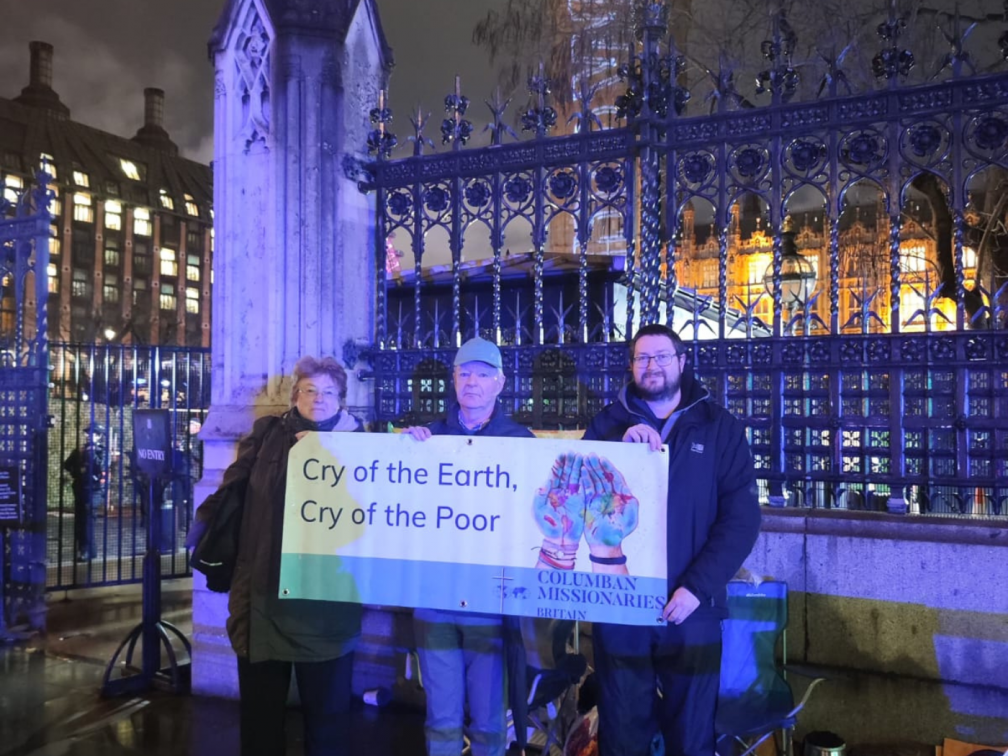
The Philippines are on the front line of the climate crisis, suffering from increasingly frequent extreme weather events, rising sea levels and devastating impacts on sea life. Mining and other extractive industries have led to deforestation and biodiversity loss. Pope Francis has noted the importance of indigenous peoples, saying, “the contribution of indigenous peoples is essential in the fight against climate change.”
In July 2023, Columbans in the Philippines approached the Mission Office in Britain with the idea of communities here supporting their tree growing partnership with the Higaonon indigenous people of Mindanao, in the South of the Philippines. An invitation was put out to Catholic primary schools in the Archdiocese of Birmingham. We were looking for 20 schools to commit for 5 years – and were massively encouraged by 25 schools saying yes. The programme goes beyond fundraising as we aim for education, faith formation and solidarity through resources, retreat days and online encounters.
The Columbans are known for their commitment to caring for creation. We can often be found engaged in and encouraging prayer, protest, liturgy and education. But over the last couple of years we’ve been working on our ‘creation covenant’, and, in particular, how we walk the talk here in Britain. So far this has involved electric cars, bee hives in the gardens and making friends with a local ecologist. A big step forward came from our developing relationship with our local council’s ‘Planting our future’ project, and the (free!) promise of trees being planted in the gardens of our regional headquarters in Solihull.
And here is the first connection. During February, over 2000 trees were planted at St. Columbans. The first day involved over 20 schools from those signed up to the partnership with the Higaonon, each bringing 2 or 3 young people plus staff to join an incredible day of action for our common home. The children wrote prayers for creation and stuck them to a ‘tree’ made from recycled materials in our conference room, learnt about the rationale for tree planting, were blessed in the ‘Peruvian style’ by our director, Fr. John Boles, and then set off into the mud! Trees were planted, yes, but we’ll remember children’s plastered faces, joy and laughter.
A couple of days later, on Shrove Tuesday, our next connection – during half term we had a day of tree planting for the community around St. Columban’s. Columban Missionaries, co-workers and their families were joined by members of a local parish who we recently led on a ‘Laudate-Deum’-themed retreat day. A Columban Lay Missionary from Chile brought a group of refugees she accompanies and a Columban sister joined us from London. People added prayers to our paper tree. And of course we couldn’t gather on that day without pancakes – a tradition it was joyful to share with our new friends from around the world.
A week later all the prayers written on leaves joined prayer intentions sent from Columbans in Japan, China, Pakistan and Australia as part of the Columban contribution to the 10 day, 24 hour Lenten climate vigil outside parliament. For 6 hours, our team of co-workers, friends, a Columban priest, previous Faith in Action volunteers and members of the Columban Justice, Peace and Ecology Team kept vigil at the foot of Big Ben, lamenting the slow action of our government, engaging with the public, and praying for climate justice. By the end of the night, the prayer intentions were slightly soggy, but all had been remembered.
So… what links the Higaonon indigenous people of Mindanao, midland mud deep enough to scuba dive in, flipping pancakes, people seeking sanctuary in the UK, prayers from around the world and the Houses of Parliament? Partnership, planting, protest and prayer; aspects of Columban mission in Britain.

